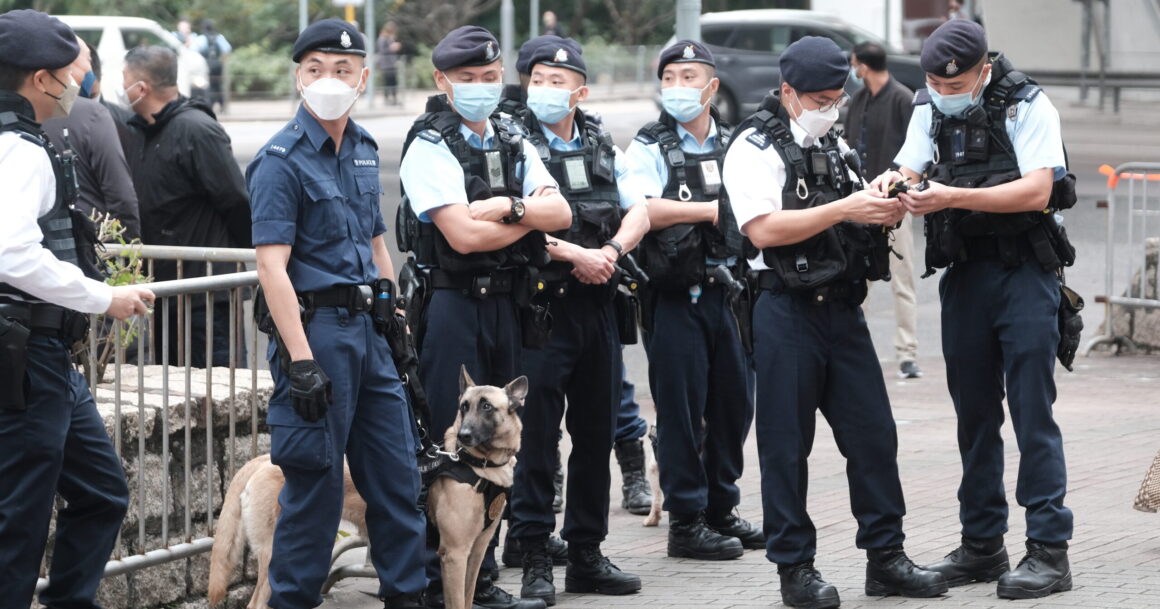

By Peter Main
On 18 December, the trial began in Hong Kong of Jimmy Lai, who was the proprietor of the now defunct Apple Daily, Hong Kong’s main liberal newspaper. Lai, who has been held in prison, mostly in solitary confinement, for three years, faces four charges, including three violations of the National Security Law (NSL). This was imposed on Hong Kong in 2020, and effectively outlaws any opposition to, or criticism of the governments of Hong Kong and Beijing. The law provides for life imprisonment if found guilty and the rate of successful prosecutions is reported to be 100 percent.
In Lai’s case, the prosecution produced as evidence of guilt the fact that he had called in his newspaper for international support for the democracy movement in Hong Kong and had tagged various international political figures on his Twitter account. Given the widespread condemnation of the trial around the world, it is worth noting that the fourth charge was brought under the British colonial law against ‘sedition’.
Lai’s trial comes just two weeks after the conclusion of the trial of the ‘Hong Kong 47’. Their ‘crime’? In July 2020 they organised an unofficial primary to choose candidates for forthcoming elections to Hong Kong’s Legislative Council, due that September. Their aim was to maximise the chances of winning enough seats to block policy, including the budget proposed by the Beijing-imposed government.
Under the National Security Law this constituted ‘subversion’ because, if the budget were not passed, the government would not be able to implement its policies. For the Chinese Communist Party (CCP), the real source of all decision-making in China, the people’s elected representatives do not have the right to stop a government implementing its policies.
The primary campaign was more successful than expected, with over 600,000, more than 13 per cent of the entire electorate, casting votes. In the event, Covid delayed the election until December 2021. By then the majority of the accused had been denied bail and were in prison, on remand. Repeated prosecution requests to delay the trial, on the grounds that more time was required to complete investigations, kept them in prison throughout 2022.
At first sight that appears to show that they had no evidence to support their prosecution when the defendants were imprisoned, but the more likely reason is the intention to intimidate others who might be thinking of any activity opposed to the government.
In the meantime the government in effect recognised the widespread support for the defendants by declaring that there was a ‘risk of perverting the course of justice if the trial is conducted with a jury’ and, therefore, appointed a hand-picked judge to try the case. The trial finally began in February 2023 and it soon became clear that some of those in the dock had actually been acting on behalf of the government by secretly filming and recording meetings to organise the primary campaign. Verdicts are not expected in less than three months, maintaining the stress on the prisoners and their families as well as serving as a warning to others.
Ironically, that trial closed on the day of the first Legislative Council election, held under new regulations. In the 2019 election, held under the previous system, turnout was 71.23 per cent and the ‘pro-democracy’ candidates won more than 80 per cent of the seats in the 18 districts contested. At that time 90 percent of seats were elected by popular vote; this time less than 20 percent were to be elected, only candidates vetted by the government could stand and, of course, the ‘pro-democracy’ candidates were in jail. Hong Kong voters made clear their hostility to this rigged system by boycotting the proceedings; turnout was just 27.5 per cent of eligible voters.
In the same month, Chow Hang Tung, a lawyer held on remand under the NSL for two years for organising the 2020 and 2021 vigils commemorating the Tiananmen Massacre of 1989, applied for release on bail, given that no date has yet been set for her trial. Chow, together with two mainland lawyers, Xu Zhiyong and Ding Jiaxi, was recently presented with the Human Rights Award of the European Council of Bars and Law Societies (CCBE).
Rejecting her request, the judge explained that this was because he did not know whether her actions contravened the NSL. Clearly, judges no longer interpret and apply the law, they wait for the judgement of the CCP or, as Chow put it in her acceptance of the CCBE Award, ‘even an “independent court”… in practice becomes the enforcer of the party’s partisan will’.
In its own way, the CCP’s staging of these show trials confirms its understanding that even the most elementary democratic rights, freedom of speech, independent political parties, free elections, really are a threat to its rule. The struggle to retain some of those rights in Hong Kong after the territory’s return to China in 1997 mobilised millions at different times but was always dominated by the assumption that this was an issue only for Hong Kong. Some even believed that ‘One Country, Two Systems’ provided some sort of guarantee of the former colony’s special status. It is clearer than ever that the struggle for even basic democratic rights in the territory cannot be separated from the struggle for those rights throughout China.
Today the national economy is slowing, unemployment rising and there are signs of division and even paralysis within the ranks of the CCP itself. Socialists throughout China need to organise themselves into a party on the basis of a programme centred on the building of independent working class organisations – workplace committees, independent trades unions, a youth organisation, a working class women’s movement –and committed to defence of workers’ interests, opposition to further concessions to capitalist interests, the overthrow of the bureaucratic dictatorship and its replacement by the rule of the workers’ organisations.